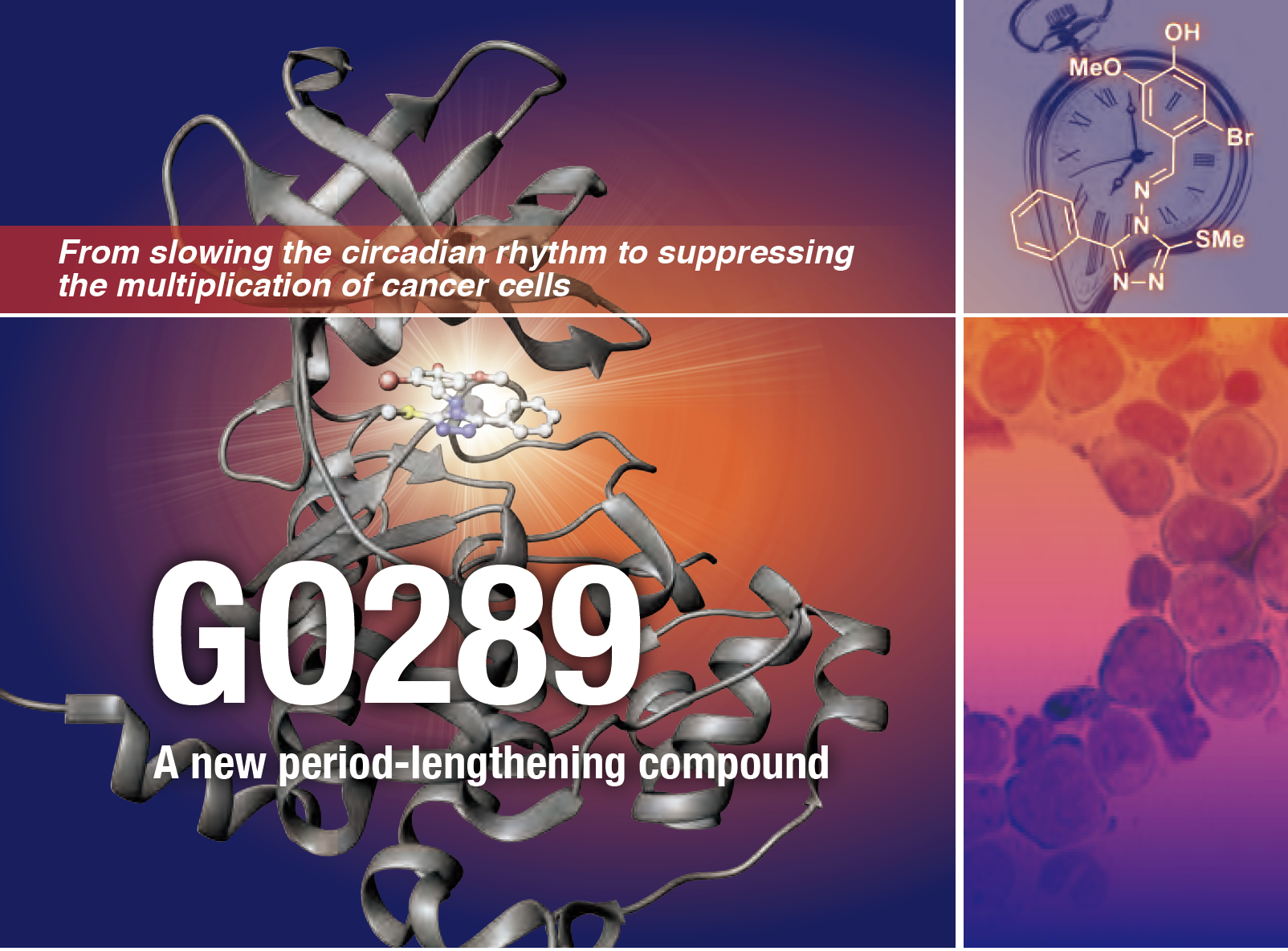
The discovery of a new molecule that prolongs the circadian rhythm of mammals
CThe circadian clock controls a large number of physiological responses through the course of a single day, starting with sleeping and waking. When this function is disturbed, it is known to have a variety of effects, including diseases such as sleep disorders and cancers.
The ITbM research team, using human cultured cells, discovered a new molecule, GO289, that lengthens the circadian rhythm. They found that it strongly and accurately inhibited a kinase called casein kinase 2 (CK2) in cells, and succeeded in observing its action at a molecular level using X-ray crystallography.
Suppressing the multiplication of cultured acute myeloid leukemia cells
CK2 participates not only in the control of the circadian clock, but also in the cell cycle and cell death. They found that when GO289 was administered to cultured cells of acute myeloid leukemia, a blood cancer, it heavily suppressed their multiplication by inhibiting CK2. Thus, GO289 is expected to find use in medical fields where the control of diseases influenced by the circadian rhythm is desired, such as the suppression of cancer cells.
Reference
“Cell-based screen identifies a new potent and highly selective CK2 inhibitor for modulation of circadian rhythms and cancer cell growth” by Tsuyoshi Oshima, Yoshimi Niwa, Keiko Kuwata, Ashutosh Srivastava, Tomoko Hyoda, Yoshiki Tsuchiya, Megumi Kumagai, Masato Tsuyuguchi, Teruya Tamaru, Akiko Sugiyama, Natsuko Ono, Norjin Zolboot, Yoshiki Aikawa, Shunsuke Oishi, Atsushi Nonami, Fumio Arai, Shinya Hagihara, Junichiro Yamaguchi, Florence Tama, Yuya Kunisaki, Kazuhiro Yagita, Masaaki Ikeda, Takayoshi Kinoshita, Steve A. Kay, Kenichiro Itami, and Tsuyoshi Hirota, Science Advances 2019, 5, 1, eaau9060. DOI: 10.1126/sciadv.aau9060